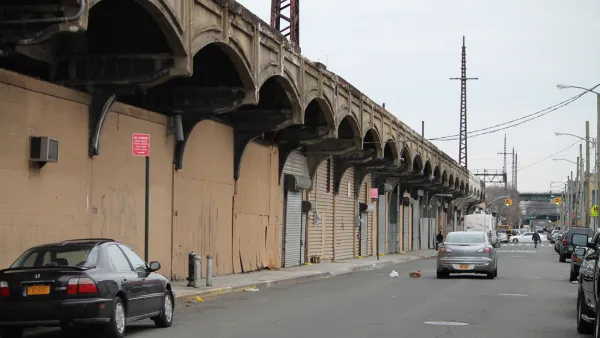Irvin Dawid discovered Planetizen when a classmate in an urban planning lab at San Jose State University shared it with him in 2003. When he left San Jose State that year, he took with him an interest in Planetizen, if not the master's degree in urban & regional planning.
As a long-time environmental activist, he formed the Sustainable Land Use committee for his local Sierra Club chapter and served six years on the Bay Area Air Quality Management District’s Advisory Council from 2002-2008. He maintains his interest in air quality by representing Sierra Club California on the Clean Air Dialogue, a working group of the Calif. Environmental Dialog representing business, regulatory and public health/environmental interests.
Major interests include transportation funding, e.g., gas taxes, vehicle miles traveled (VMT) fees, road tolls and energy subsidies that lead to unlevel playing fields for more sustainable choices.
He hails from Queens (Bayside) and Long Island (Great Neck); received an AAS in Fisheries & Wildlife Technology from SUNY Cobleskill and a B.S. from what is now Excelsior College.
After residing for three years on California’s North Coast, he’s lived on the San Francisco Peninsula since 1983, including 24 years in Palo Alto. Home is now near downtown Burlingame, a short bike-ride to the Caltrain station.
He’s been car-free since driving his 1972 Dodge Tradesman maxi-van, his means to exit Long Island in 1979, to the junkyard in 1988.
Major forms of transportation: A 1991 'citybike' and monthly Caltrain pass, zone 2-2. "It's no LIRR, but it may be the most bike friendly train in America."
Irvin can be reached at [email protected]
Freight Movement Drives Rail Resurgence
Freight rail is booming throughout the U.S. While shipping oil from North Dakota's Bakken shale basin has been a huge factor in the resurgence, Betsy Morris digs deeper and analyzes the surprising competition between road and rail.

Plans for Queens' 'High Line' Has Competition: Bringing Back the Train
Queen's version of Manhattan's High Line is known as the QueensWay, an abandoned LIRR branch that went from Rego Park to Rockaway. Two congressmen have now endorsed a plan to bring the train back - though planning for the new park has already begun.
When Are Big Buildings Too Big?
When the 807 ft. MetLife Building in Manhattan's Midtown opened half a century ago, it was viewed as an 'assault' on it's iconic neighbor, Grand Central Terminal. However, it was indicative of what the real estate market wanted in the 1960s.
Oil Independence or Independence from Oil?
With booming shale oil production in North Dakota and Texas and possibly Canada's vast oil sands, there is talk of energy independence as the U.S. reduces its oil imports. But why not be less dependent on oil - domestic or imported?
More Rigorous Fracking Standards Designed by Drillers and Environmentalists
A two-year negotiating process has culminated with a set of 15 voluntary standards to make for more responsible fracking to safeguard the environment in Appalachia. Some environmental groups are skeptical, and not all energy companies are on board.

























